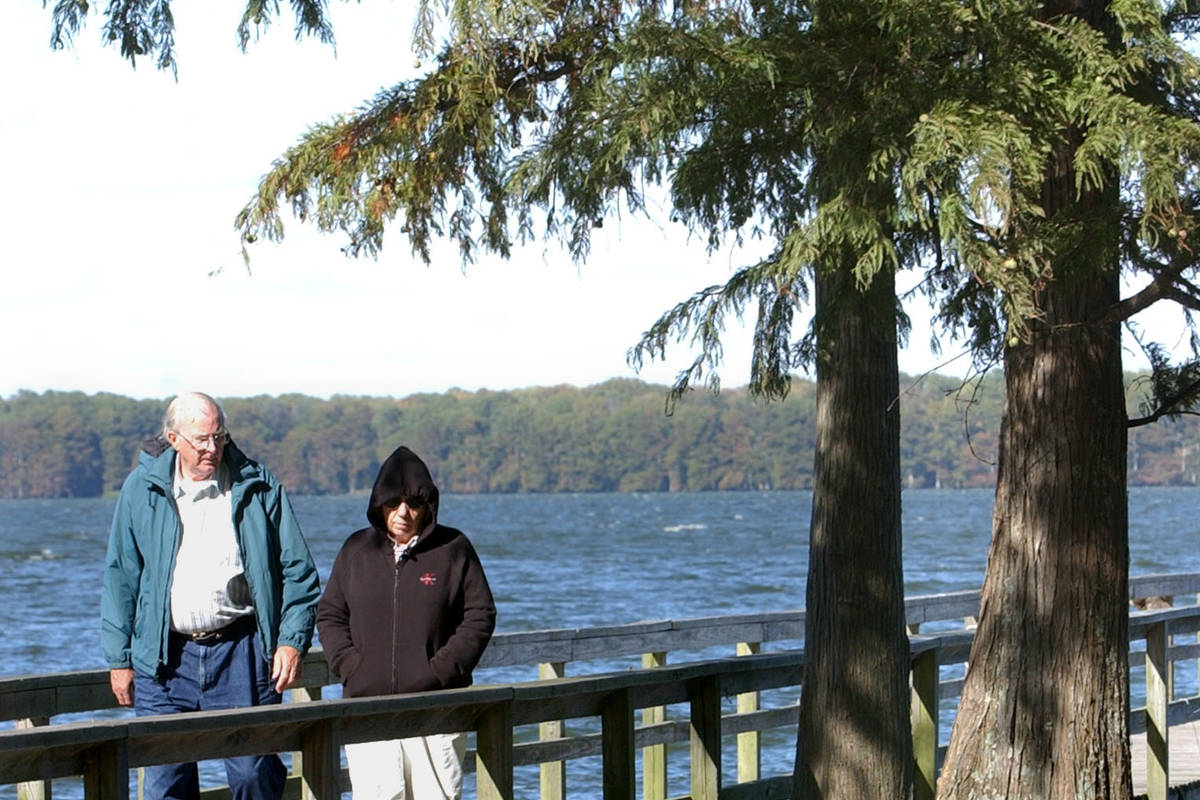A little respect goes a long way in the outdoors

Reelfoot Lake, Tennessee, is a long way from Southern Nevada. Approximately 1,675 miles due east via Interstate 40 and places like Albuquerque, Oklahoma City and Memphis.
Nevertheless, an apparent argument that resulted in the deaths of three hunters at that popular duck hunting destination should give all of us hunters reason for a little introspection.
I suppose the same holds true for anglers, campers, hikers and all other outdoor enthusiasts. We might begin by asking, “What kind of person do I become when I am in the outdoors?”
According to reports, three men were hunting ducks on Reelfoot Lake the morning of Jan. 25 when they were approached by 70-year-old David Vowell and an argument ensued. During that disagreement, Vowell allegedly shot and killed Chance Black, 26, and Zachary Grooms, 25.
The third man, Jeffrey Crabtree, told investigators that he wrestled the gun away from Vowell, who then fled the scene. Days later, Vowell’s body was found nearby, but the cause of his death has yet to be determined.
The next question we might ask ourselves is, “What in any normal hunting situation could possibly justify the taking of one’s life?”
Of the incident at Reelfoot Lake, Will Brantley, a contributor for Field & Stream, wrote that “Among area duck hunters, there seems to be two sentiments: Grief and sadness for the victims is, rightfully, the first. But there is also a morbid understanding—an assumption that it was an argument over duck hunting that became heated enough for someone to start shooting—and a general lack of surprise that this could happen.”
That there is a lack of surprise among duck hunters that something as heinous as a double murder took place at this popular destination should be a wake-up call for each of us.
Brantley went on to explain that “Reelfoot Lake is a tough place, one that’s legendary for blind burnings, fistfights and boat ramp justice against anyone who doesn’t follow the rules.”
To the best of my knowledge, we have not yet experienced blind burnings, fistfights and boat ramp justice in Nevada, but that does not mean there have never been disagreements between hunters. Or for that matter between anglers, boaters, campers, hikers and members of other outdoor user groups.
During the past couple of hunting seasons, a handful of friends have spoken with me about their own disagreements with other recreationists while in the field right here in the Silver State. What we are talking about are user conflicts, something that occurs when the behavior of one person or group interferes with the desired experience of another.
Consider, for example, how you might feel if you have been working hard to bring a flock of ducks into your decoy spread and within shooting range only to have the birds scattered at the last minute by another hunter who begins taking shots at the flock even though it is well out of their effective range.
Or what your thoughts might be if you spent the early morning hours hiking in the dark so you can be in position when the sun comes up on your deer hunting area only to have someone drive through your set on a four-wheeler.
These things do happen, and as the number of people going outside continues to increase, so too will the chances for conflicts, but they don’t have to. Not intentionally anyway.
Recreation managers can use a variety of tools to limit the chances of conflicts. Among them are things like law enforcement, zoning and limiting the use of a resource, but perhaps the most effective and most palatable are the old-fashioned notions of common courtesy and respect for others.
Freelance writer Doug Nielsen is a conservation educator for the Nevada Department of Wildlife. His “In the Outdoors” column is not affiliated with or endorsed by the NDOW. Any opinions he states in his column are his own. Find him on Facebook at @dougwritesoutdoors. He can be reached at intheoutdoorslv@gmail.com